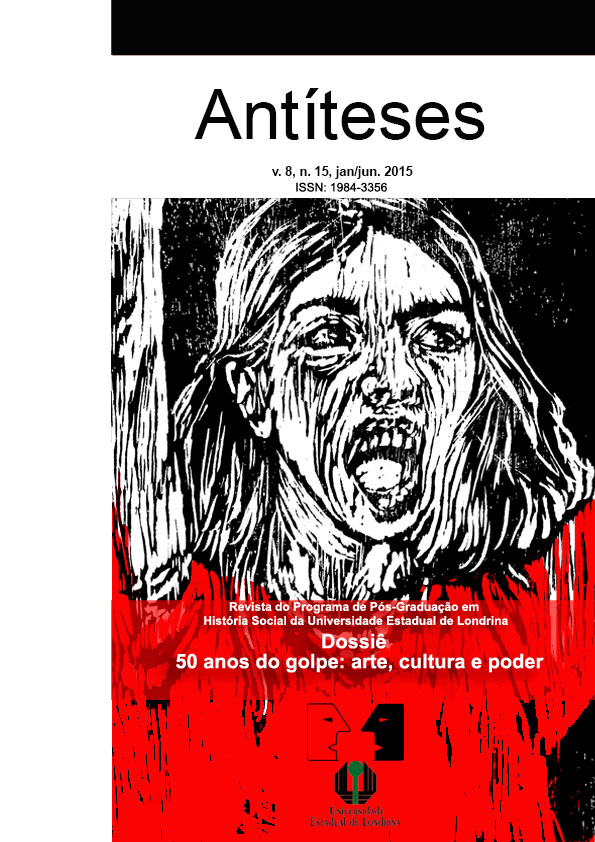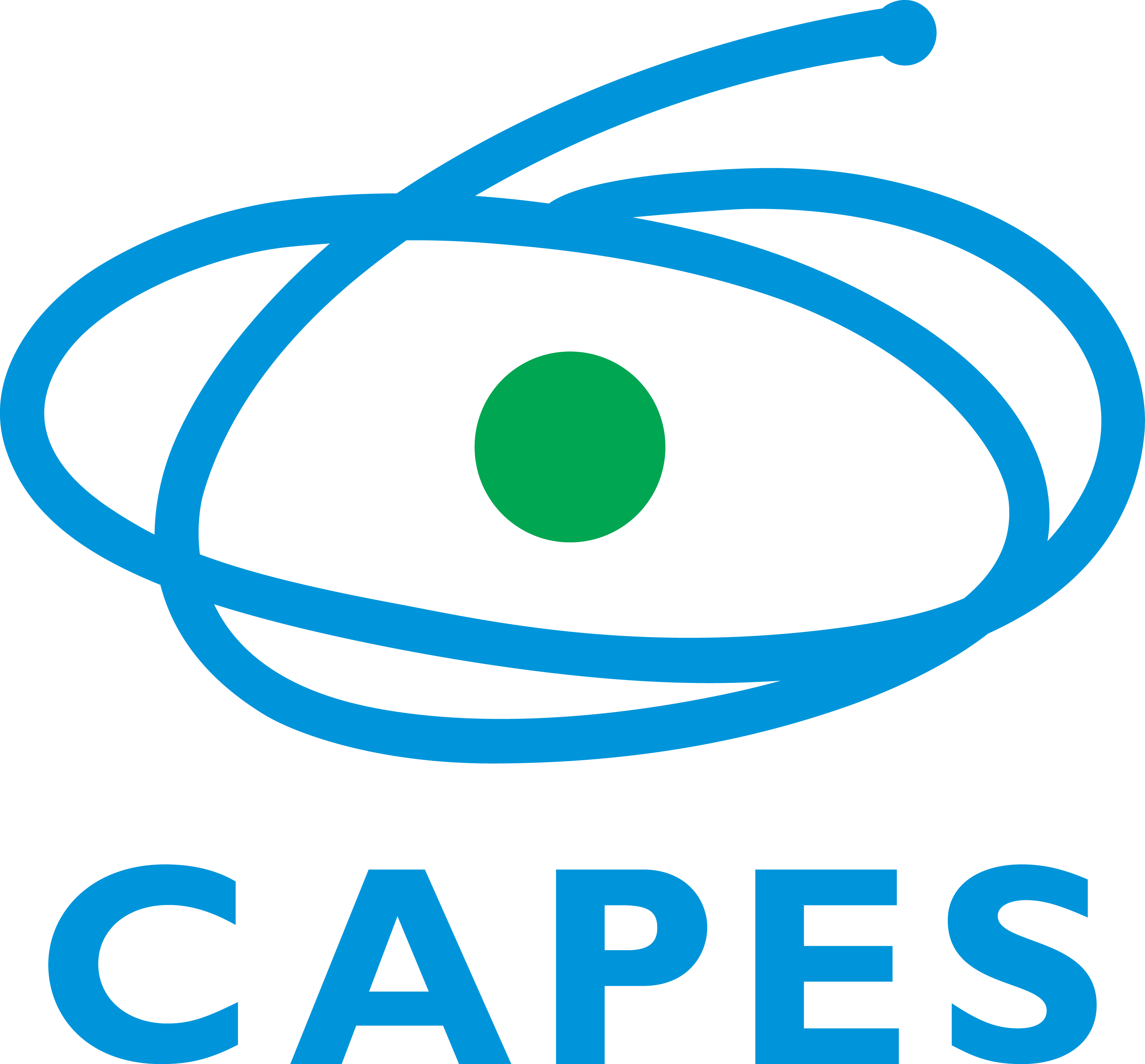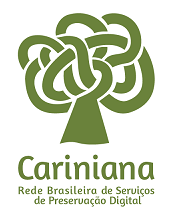The fabric of Ariadne's thread : archive and film censorship in Brazil
DOI:
https://doi.org/10.5433/1984-3356.2015v8n15p134Keywords:
Censorship, Cinema, Archive, Dictatorship, BrazilAbstract
The paper broaches the cinema censorship in Brazil along the civil-military dictatorship (1964- 1965) by means of the study of an official document found in the proceedings of the film Toda nudez será castigada (Brazil, 1973), by the director Arnaldo Jabor. The Ordinance 3/3, of June 20, 1973, attributed to itself the reexamination and decision over this film and other eight ones - Sopro no coração (France, 1971), A classe operária vai ao paraíso (Italy, 1971), Mimi, o metalúrgico (Italy,1972), Sacco e Vanzetti (Italy, 1971), A aventura é uma aventura (France, 1972), Cama com música (Denmark, 1972), Queimada (England, 1969) e Os garotos virgens de Ipanema (Brazil, 1973). These proceedings are analyzed along with other ones that compound the archive of the Censorship and Public Amusement Division (DCDP), which contains over thirty thousand proceedings, besides administrative documents. The aim is to understand the reading keys used by censors and the negotiations for prohibition and liberation performed by DCDP.Downloads
Download data is not yet available.
References
ALVES, Maria Helena Moreira. Estado e oposição no Brasil (1964-1984). Petrópolis: Vozes, 1984.
CHARTIER, Roger. À beira da falésia - a história entre certezas e inquietudes. Porto Alegre: Ed. UFRGS, 2002.
FARGE, Arlete. O sabor do arquivo. São Paulo: EDUSP, 2009.
FICO, Carlos. "Prezada Censura". Cartas ao Regime Militar. Revista Topoi, Rio de Janeiro, n. 5, set. 2002.
KUSHNIR, Beatriz. Cães de guarda - jornalistas e censores, do AI-5 à Constituição. São Paulo: Boitempo, 2012.
MARTINS, William de Souza Nunes. Produzindo no escuro - políticas para a indústria cinematográfica e o papel da censura (1964-1988). Tese de doutorado - Instituto de Filosofia e Ciências Sociais - Universidade Federal do Rio de Janeiro, Rio de Janeiro, 2009.
MOTTA, Rodrigo Patto Sá. Em guarda contra o perigo vermelho. São Paulo: Perspectiva: Fapesp, 2002.
PROST, Antoine. As palavras. In: RÉMOND, René (org.). Por uma história política. Rio de Janeiro: Ed. FGV, 2003. p. 291 a 330.
SIMÕES, Inimá. Roteiro da intolerância - a censura cinematográfica no Brasil. São Paulo: Editora SENAC; Editora Terceiro Nome, 1998.
CHARTIER, Roger. À beira da falésia - a história entre certezas e inquietudes. Porto Alegre: Ed. UFRGS, 2002.
FARGE, Arlete. O sabor do arquivo. São Paulo: EDUSP, 2009.
FICO, Carlos. "Prezada Censura". Cartas ao Regime Militar. Revista Topoi, Rio de Janeiro, n. 5, set. 2002.
KUSHNIR, Beatriz. Cães de guarda - jornalistas e censores, do AI-5 à Constituição. São Paulo: Boitempo, 2012.
MARTINS, William de Souza Nunes. Produzindo no escuro - políticas para a indústria cinematográfica e o papel da censura (1964-1988). Tese de doutorado - Instituto de Filosofia e Ciências Sociais - Universidade Federal do Rio de Janeiro, Rio de Janeiro, 2009.
MOTTA, Rodrigo Patto Sá. Em guarda contra o perigo vermelho. São Paulo: Perspectiva: Fapesp, 2002.
PROST, Antoine. As palavras. In: RÉMOND, René (org.). Por uma história política. Rio de Janeiro: Ed. FGV, 2003. p. 291 a 330.
SIMÕES, Inimá. Roteiro da intolerância - a censura cinematográfica no Brasil. São Paulo: Editora SENAC; Editora Terceiro Nome, 1998.
Downloads
Published
2015-07-31
How to Cite
LUCAS, Meize Regina de Lucena. The fabric of Ariadne’s thread : archive and film censorship in Brazil. Antíteses, [S. l.], v. 8, n. 15, p. 134–153, 2015. DOI: 10.5433/1984-3356.2015v8n15p134. Disponível em: https://ojs.uel.br/revistas/uel/index.php/antiteses/article/view/21050. Acesso em: 18 dec. 2025.
Issue
Section
Dossier
License
Copyright (c) 2015 Antiteses

This work is licensed under a Creative Commons Attribution 4.0 International License.
The journal reserves the copyright on the contributions published, without material compensation for the author, and may make them available online in Open Access mode, through its own system or other databases; you can also make normative, orthographic and grammatical changes in the originals, in order to maintain the cultured standard of the language, with the final consent of the authors. The opinions expressed by the authors are their sole responsibility.










